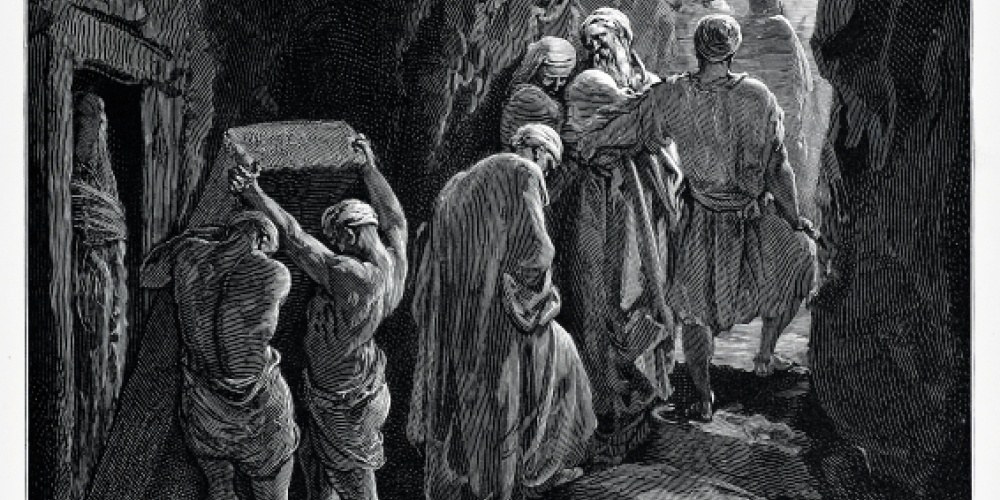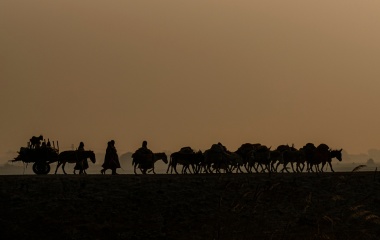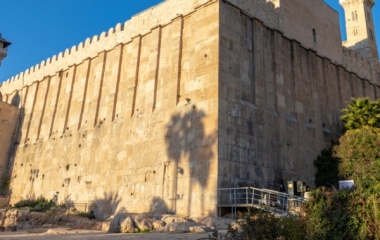
This week's dvar torah is being sponsored by Nolene and David Maresky and family in memory of Rina and Shim Maresky, and Jack Epstein z"l.
"And Sarah died in Kiryat Arba, that is Hebron, in the land of Canaan" (23:2). Sefer Breisheet is the book of life, focusing on the creation of life in all of its forms. Much of parshiot Breisheet and Noach is taken up by seemingly meaningless lists of names of those who were born and helped to populate the planet. Interestingly, in the ten generations from Noach to Abraham, the Torah does not even mention death at all; rather, it lists one name from each generation, tells us that person had many brothers and sisters and that they lived so many years. We are never actually told that anyone died.
It is only with Sarah that death and burial become a focal point of the Torah, with twenty verses detailing her death, the negotiations to purchase a plot and finally her burial. No other Biblical figure, with the possible exception of Yaakov, has their death described in such great detail. We are even told that it was Abraham who gave the eulogy. Yet his death, recorded at the end of Chayei Sarah, takes up exactly one verse. The deaths of Rivkah and Leah are not even mentioned in Chumash.
Even more striking is the triple identification of the place of Sarah's death, Kiryat Arba, Hebron and Canaan. Only in the story of Sarah are we specifically told where she died. We can well understand the Torah recording the burial place of the patriarchs and matriarchs, but of what significance is the place of death?
The Torah notes that it was to Be'er Sheva that Abraham returned after Akeidat Yitzchak. Apparently, at some unknown point the family moved to Hebron, where Sarah died and was buried. Of what significance was such a move?
"Thus was the place called Be'er Sheva, because there they [Abraham and Avimelech) took an oath. They made a treaty...and Abraham lived there in the land of the Philistines for many years" (21:31-34). Abraham's sojourn in Be'er Sheva is predicated on his treaty with Avimelech, and thus of a temporary nature; he may be asked to leave, something that happened to Yitzchak a few years later.
But the connection of the Jewish people to the land of Israel runs much deeper, as symbolized in the name Hebron. “And G-d said to Abram, ‘Go...to the land which I will show you and I will make you into a great nation’". Our connection to the land is a covenantal one between G-d and the Jewish people, not dependant on the whim of foreign rulers. This relationship is, as Rashi notes in his opening comment of the Chumash, one the nations of the world do not readily accept. They claim we are robbers who have stolen the land, that we are interlopers settling on land belonging to others.
Hebron means to connect, lechaber; to join together people (chaver) or ideas (chibur). Our relationship to the land reflects the deep inner bond between the people of Israel and the land of Israel.
Jewish history begins with the call to Abraham to settle the land. Yet it is Sarah, more than Abraham, who ensured the founding of the Jewish nation. "All that Sarah says, you shall hearken to her voice" is G-d's instruction to Abraham. She understood that Yitzchak and Yishmoel could not coexist. Even when G-d instructs Abraham to take his son to the Akeidah, Abraham is unsure to which son G-d is referring; he saw Yishmael as his inheritor, equally as much his heir as Yitzchak. Interestingly, seven out of the eight children of Abraham did not become part of the Jewish people. No wonder our Sages linked Akeidat Yitzchak to the death of Sarah. She, more than Abraham, understood that Jewish history would be stillborn if Yitzchak were to die.
With the death of Sarah, the first chapter of Jewish history comes to a close. It is her death that establishes the permanent link between the Jewish people and the land of Israel. Abraham traverses the land, building altars, proclaiming the name of G-d, digging wells, planting trees. In short, he begins to establish his presence in the land. But not until one is buried does one form an unbreakable bond to the land.
But Israel is not a place to come only to die. It is a place with which to establish a connection, to make a chibur, while still alive. Sarah had to move to Hebron to make that living link. And once she did so, she fulfilled her final mission, one to be continued by her one and unique son Yitzchak. Shabbat Shalom!



